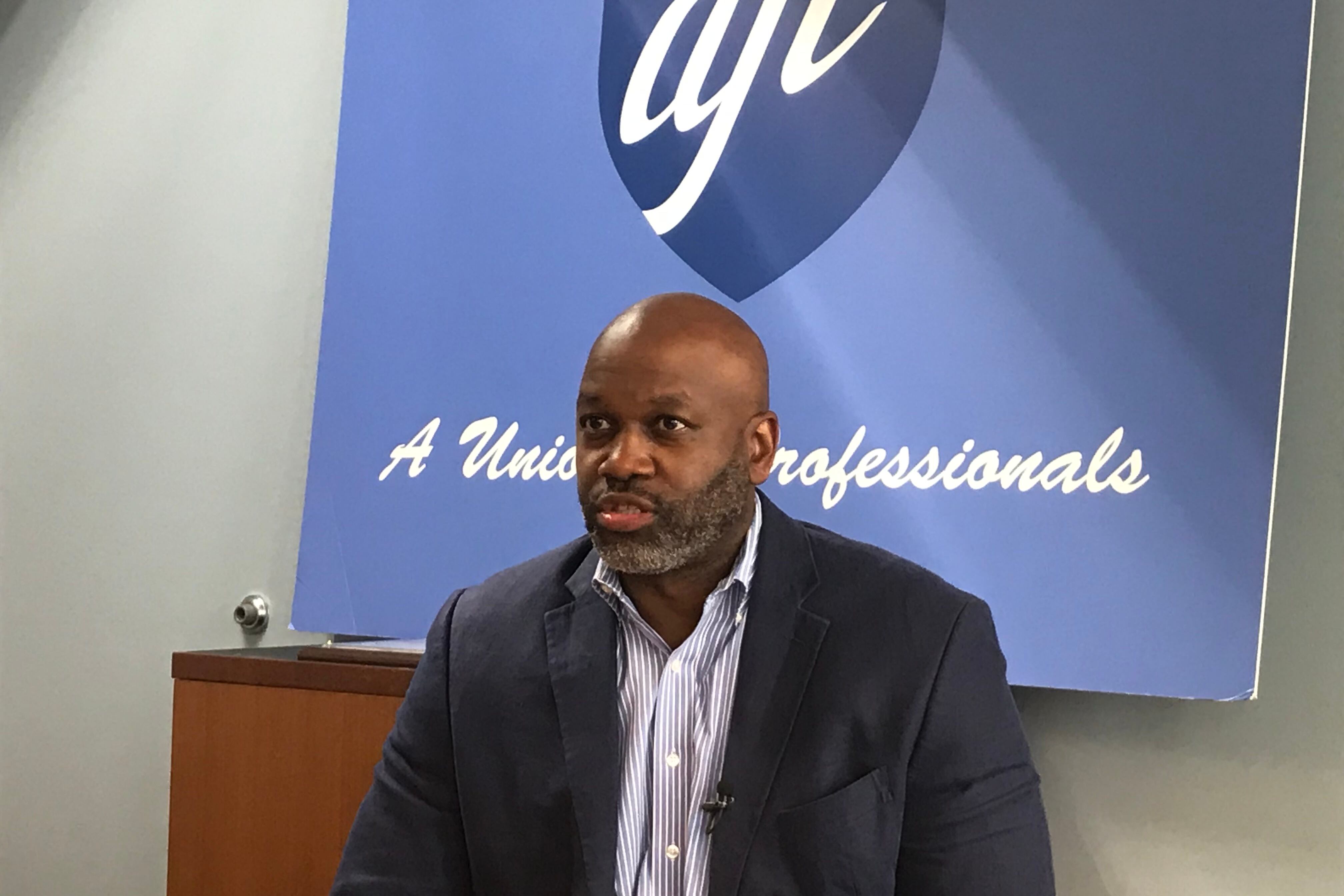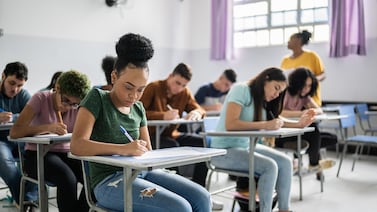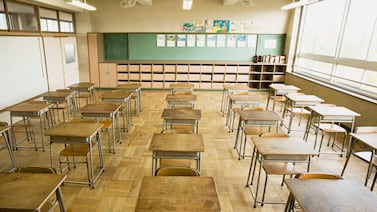The head of the Detroit teachers union warned Tuesday that teachers might refuse to come back to the classroom this fall because of COVID safety concerns.
A coalition of community organizations, parents, and labor leaders wants the Detroit school district to address their concerns or begin the school year virtually this fall instead of insisting on in-person learning.
“At this particular moment, we believe it is unsafe for students and staff to start school in the fall,” Terrence Martin, the president of the Detroit Federation of Teachers, said at the Tuesday press conference. “We are urging the school district to begin the school year in an online learning platform. We believe this is the safest way to do it.”
The union represents 4,000 district employees, most of whom are teachers. Martin said that if demands aren’t met, “then we won’t show up.” The list of demands includes stringent COVID safety protocols, including mandatory testing for students and staff, and increased worker protections.
School districts across the state are grappling with the challenges of reopening schools safely in the fall. Lansing, Ann Arbor, and Grand Rapids are among the districts that will begin the school year fully online. The Detroit district’s fall reopening plan, approved July 14, includes holding face-to-face classes when schools start in September, in addition to offering a virtual option.
In the last week, three students attending Detroit’s in-person summer school classes have tested positive for COVID-19, and the district is currently battling a lawsuit to shut down in-person summer school. Critics have questioned the effectiveness of the current safety protocols in the district’s reopening plan.
DFT held the Tuesday press conference with members of 482Forward, the Detroit Hispanic Development Corporation, Detroit Association of Educational Office Employees, and Detroit Federation of Paraprofessionals.
The group also wants all employees to be able to opt in to in-person work, and wants the district to provide hazard pay for teachers working in school buildings and offer academic packets for families to learn from home. A recently passed bipartisan bill would use federal coronavirus relief money to give all K-12 teachers working during the pandemic a $500 hazard pay grant.
Detroit district superintendent Nikolai Vitti has said that the district must offer a mix of in-person and learning options to meet the diverse needs of students and families.
In response to the group’s demands, he challenged union leadership to consider how limiting learning options could create issues of inequity.
“Is DFT demanding that student COVID testing occur in the fall although it is not required by state law and likely to be legally challenged by parents who feel it is unjust to test DPSCD students only who have a right to a free public education?” he said in a statement.
Starting the school year online could lead to a loss of state and federal funding if school districts are required to offer in-person classes and don’t. Right now, a Republican-backed GOP bill in the Michigan Legislature would require in-person instruction for K-5 students. The district also could suffer enrollment losses if face-to-face classes aren’t an option.
Vitti said the district is “more than willing” to meet again with union leadership and community stakeholders to discuss how the reopening plan can be improved. The district is planning virtual town halls to elicit more feedback on the reopening plan.
But the coalition wants more equitable representation when developing reopening plans and safety guidelines.
Angie Reyes, the director of Detroit Hispanic Development Corporation, said the group is calling for the formation of a city-wide advisory committee to develop recommendations for COVID testing, contact tracing, and other safety protocols, and a committee of community members to develop best practices for at-home learning and additional social support.
“This issue on how we reopen schools is fundamental to the health and well-being of families and educators,” she said.
Elsewhere in Michigan, similar demands about reopening were made Tuesday by the Michigan Caucus Of Rank-and-File Educators, a statewide teacher union caucus that represents more than 1,000 Michigan educators who fight for racial, social, and economic justice.
During a press conference the group held, members said they are launching a public campaign to raise awareness of their demands. They say schools should not reopen until their regions have gone 14 days with no new COVID-19 cases. They also say schools should receive equitable funding and protect teaching and learning conditions, and that school environments should be safe.
Members are also calling for regular COVID-19 testing of students and staff.
Hussein Beydoun, a founding member of the group and a teacher from Dearborn, said its membership has grown tenfold since the pandemic.
“All are rightly terrified about the prospects that lie ahead,” he said.







